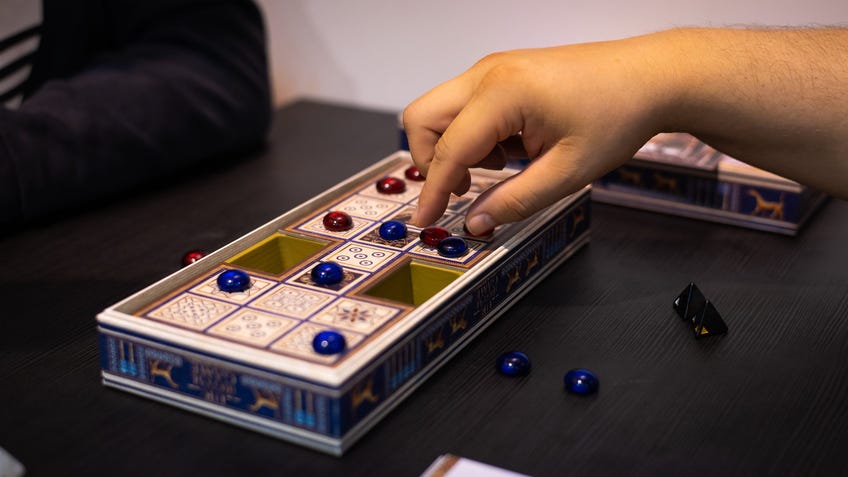One of the oldest board games in existence seeks crowdfunding for a brand new version
The Royal Game of Ur wants a facelift.
Everybody and their mothers are launching Kickstarter campaigns, it seems, and now that includes a 4,500-year-old board game that traces its roots back to the Sumerian culture at the dawn of the bronze age.
The Royal Game of Ur is, at time of writing, one of the oldest examples of board games existing in human culture. Played by rulers and farmers, Ur is believed to have spread from Mesopotamia to Northern Africa and India. Sometimes called the Game of Twenty Squares, its rectangular board is said to represent the connection between heaven and Earth, while the movement of tokens was interpreted as both mere entertainment and important divination tools.
A Slovenian company called Spartan Development d.o.o., in coordination with Freecompany recently launched a Kickstarter campaign to re-imagine this ancient pastime as Ur: the Royal Game. Modelled after an intricate version looted from the Royal Cemetery at Ur in modern-day Iraq by British archaeologist, this contemporary version will mirror that artefact’s precious stones, carvings and colours.
A few records explaining the rules of Ur exist on cuneiform tablets, translated and contextualised by historians. It’s apparently not a perfect understanding of how Mediterranean cultures played the game, and the two-player board game currently funding on Kickstarter takes even more creative liberties. Two different rulesets let players try out the traditional race to move your pieces across the board first through a combination of luck and strategy, while more complex modern rules unlock movement and give certain tiles specific functions and special abilities.
Spartan Development’s interpretation also provides gold and silver-coloured dice (d4-sized), a more modern board on the flipside of the original and 14 glass beads split between the red and blue players. It’s a bit strange to see a veritable relic tucked away inside a cardboard box alongside a rulebook and holding bags, but projects such as these keep approximations of designs from disappearing with the sands of time.
Ur is just one example of our efforts to save ancient board games, either in the original form or adapted for public consumption. Norse tafl games from the era of vikings have remained popular in several different forms over the years, and we’re all familiar with the long histories behind both chess and Go. But it isn’t every day that a form of leisure and communal play returns from the dead, and the updates outlined by the designers seem keyed towards introducing the game to a wider audience while still retaining its accuracy.
The Kickstarter campaign for Ur: the Royal Game will run through March 28th in order to produce a physical box that will ship to backers beginning in March 2025. The publisher is also actively selling pre-orders to retail, so you might see a blast from the past hit the shelves of your local hobby shop.

